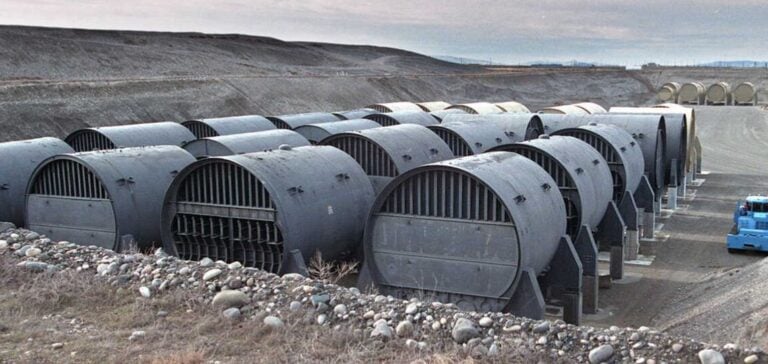At a roundtable discussion organized by the American Nuclear Society, several former U.S. Department of Energy (DOE) officials suggested taking nuclear waste management out of DOE hands. William Magwood, former Director of the Office of Nuclear Energy under the Clinton and George W. Bush administrations, proposes that this task be entrusted to an independent organization funded by the industry. Currently, Magwood heads the Paris-based Nuclear Energy Agency, which operates under the aegis of theOECD (Organisation for Economic Co-operation and Development).
The need for an independent entity
According to the former officials, an independent nuclear waste management authority would make it possible to better manage the challenges of storing and processing radioactive waste. They believe that such an organization would be more credible and have constant access to the necessary funding, thus guaranteeing the continuity and fulfillment of commitments. Dennis Spurgeon, former head of the Office of Nuclear Energy under the second Bush administration, advocates the creation of such an entity, drawing inspiration from the Tennessee Valley Authority model.
Current problems and proposed solutions
The DOE recently approved the construction of a consolidated interim storage site for spent nuclear waste, which would be transported by rail to a location yet to be determined. However, the process of locating, researching, selecting sites and negotiating with host communities could take up to 15 years. Spurgeon and other experts advocate resurrecting earlier legislative proposals to create a nuclear waste management authority. This model, similar to that used in Canada, Sweden and France, has proven its effectiveness and reliability.
International models and lessons learned
Canada created the Nuclear Waste Management Organization in 2002, an entity funded by the country’s nuclear power producers. Similar organizations also exist in Sweden and France, where they have succeeded in managing nuclear waste efficiently and responsibly. John Kotek, former director of nuclear energy programs under the Obama administration, stresses that credibility and ongoing funding are essential to the success of such initiatives.
Perspectives and challenges
Nuclear waste management is a major challenge for the nuclear power industry in the United States. The creation of an independent entity could improve the long-term management of radioactive waste and strengthen public confidence in storage and treatment solutions. By adopting internationally proven models, the United States could establish a more robust and sustainable framework for nuclear waste management.
The proposal to create an independent entity for nuclear waste management represents an important step towards a sustainable and effective solution to a complex problem. By leveraging international best practices and securing stable funding, this initiative could transform the way the U.S. manages its nuclear waste, offering better protection for the environment and public health.






















